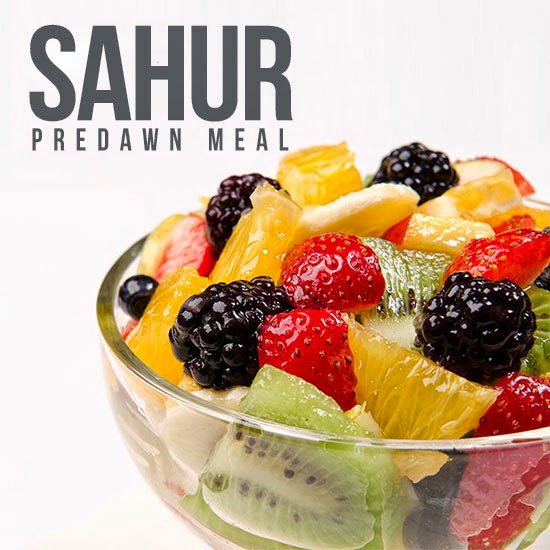A healthy diet doesn’t focus on what you cannot eat, rather on the importance of what you eat and because of this period we are in, where Muslims are observing their obligatory fast – what is importanter is what you eat during those non-fasting hours. When I talk about healthy eating during Ramadan or any other time of the year, I don’t mean being on a restrictive diet. I am also not sharing this for the sole purpose of weight loss. Eating wholesome and healthy foods during the month of Ramadan and any other time is recommended and beneficial for many reasons such as:
-
Higher energy levels for ‘Ibadah (worship).
Opportunity to initiate healthy habits that you can incorporate all year round.
-
Prevent bloating and discomfort associated with overeating at Iftar (breaking of fast).
-
To have the best Ramadan yet both spiritually and physically and incorporate healthy eating into your Sahur an Iftar.
Sahur (Pre-dawn meal)
With limited opportunities to eat during each day, Sahur is very crucial during Ramadan. It is not only Sunnah to have Sahur but to have a healthy and wholesome one. Sahur will help get you set for a more energetic day of fasting. There are five main components of healthy Sahur meal:
- Protein – Chicken, eggs, yoghurt, beans, etc.
- Carbohydrate – Rice, bread, oatmeal, etc.
- Healthy Fats – Nuts, avocado, etc.
- Fruits and Vegetables – Lettuce, cucumbers, watermelon, etc.
- Water – Pure drinking water.

Iftar (Breaking of fast)
It is similarly important to incorporate healthy eating components at Iftar. The way you eat your meal will have a big impact on the way you feel for the rest of the night. It is very common to feel sluggish and tired after Iftar. To prevent tiredness follow this.
- Start with one to three dates and a cup of water. This will allow you to fulfil a Sunnah while also being hydrated.
- Have a small bowl of fruits. You want to bring your sugar level back to normal. Fruits have a good balance of natural sugar, water, fibre and nutrients.
- Pray your Maghreb. This may be challenging for some, especially if there is a spread of food in front of them, but trust me, when I say, that is what would prevent overeating. Taking about 10-15 minutes break between your Sunnah snack and your iftar can prevent you from overeating.
- For your main meal, eat a half plate of vegetables, a quarter-plate of protein and a quarter-plate of carbohydrate, If possible but if not, still eat more veggies than protein and carbohydrate.
- Drink enough water.

NOTE: Rushing over any substance (food) is unhealthy. Do much to avoid it.
Comments
Post a Comment